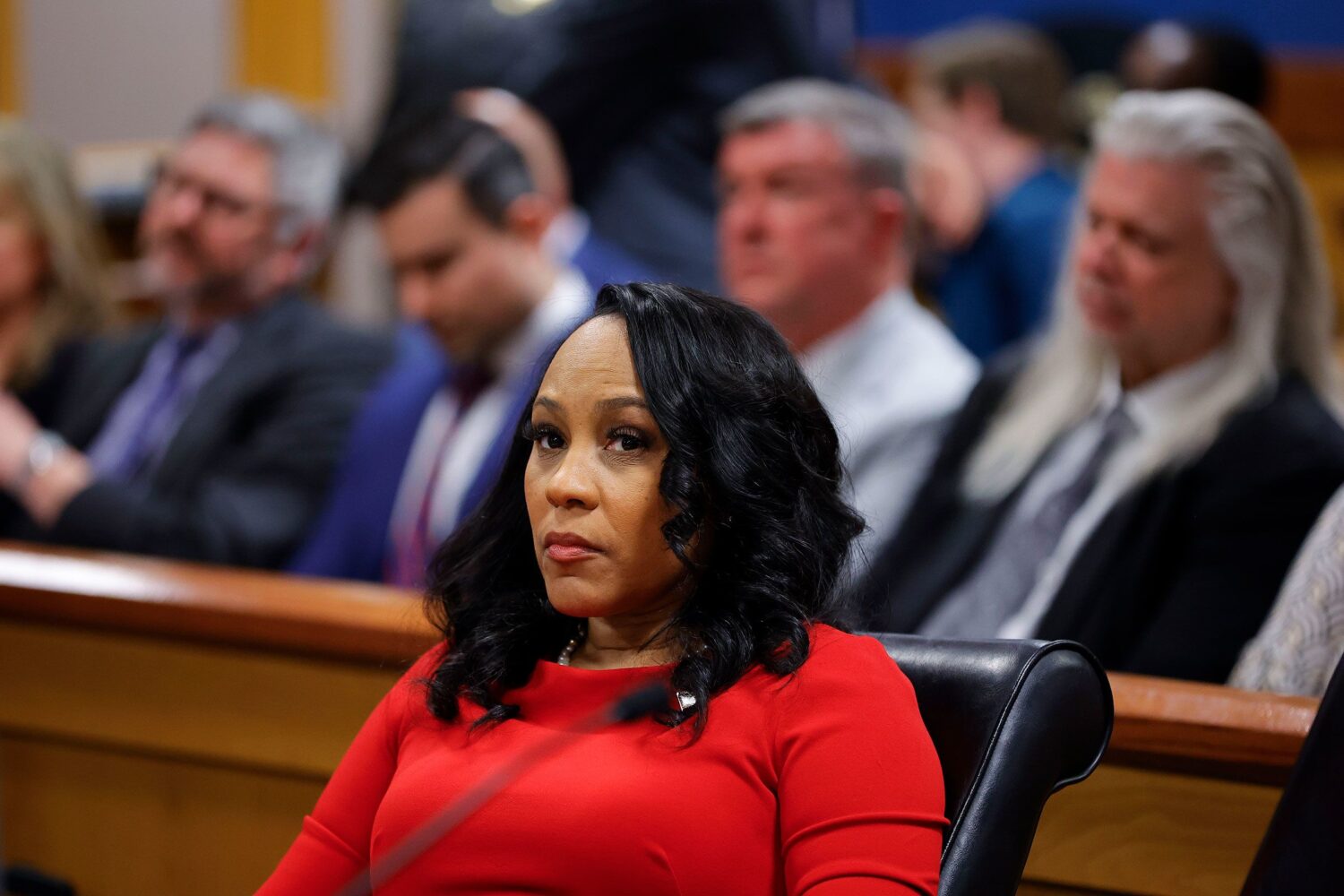
(CNN) — Fulton County District Attorney Fani Willis can stay on and prosecute the Georgia 2020 election interference racketeering case against former President Donald Trump and 14 of his co-defendants, Judge Scott McAfee ruled Friday, but only if she removes the special prosecutor with whom she engaged in a romantic relationship.
CNN has reached out to the district attorney’s office.
After more than two months marked by a flurry of court motions and hearings, which included fiery testimony from Willis on the stand defending her relationship with Nathan Wade, the sprawling conspiracy case against Trump and his 2020 allies can now proceed depending on Willis’ decision.
McAfee was highly critical of Willis and Wade’s relationship, describing it as being the result of “bad choices.”
“This finding is by no means an indication that the Court condones this tremendous lapse in judgment or the unprofessional manner of the District Attorney’s testimony during the evidentiary hearing,” McAfee wrote.
However, the judge wrote, “Georgia law does not permit the finding of an actual conflict for simply making bad choices – even repeatedly.”
And the judge described Willis’ fiery testimony last month during one of the hearings over whether to disqualify her as “unprofessional.”
Judge: Cash payments are ‘not so incredible as to be inherently unbelievable’
McAfee said that while Willis kept no records of payments she says she made to Wade in reimbursements for vacation travel the two took together, her claim that she paid him back in cash “was not so incredible as to be inherently unbelievable.”
“Such a reimbursement practice may be unusual and the lack of any documentary corroboration understandably concerning. Yet the testimony withstood direct contradiction, was corroborated by other evidence,” McAfee said.
Willis, the judge noted, provided no ledger of her alleged payments to Wade “and the district attorney may well have received a net benefit of several hundred dollars.”
Despite this, McAfee said “the Defendants have not presented sufficient evidence indicating that the expenses were not ‘roughly divided evenly.’”
“In addition – and much more important – the Court finds, based largely on the District Attorney’s testimony,” McAfee said, “that the evidence demonstrated that the financial gain flowing from her relationship with Wade was not a motivating factor on the part of the District Attorney to indict and prosecute this case.”
Ashleigh Merchant, attorney for Trump co-defendant Mike Roman, initially alleged their relationship was conflict of interest and claimed they lied about when it began.
Citing financial statements turned up in Wade’s divorce proceeding, Merchant claimed Willis financially benefited when Wade took her on lavish vacations after she hired him as special prosecutor in late 2021 as the investigation into Trump and his allies was heating up. Willis denied there was anything improper about their relationship.
However, potentially conflicting information about when exactly the romance started was a central issue that derailed Willis’s prosecution against Trump and his allies, an investigation she started almost immediately after taking office in 2021.
“I do not consider our relationship to have become romantic until early 2022,” Willis testified on February 15, in an evidentiary hearing on the allegations to have her removed.
When she was elected to the DA position, Willis inherited a backlog of more than 16,000 cases, in part because of delays caused by the Covid-19 pandemic. Wilis chose to dedicate much of her energy on what she believed was the most important case; prosecuting Trump for his attempts to steal the Georgia election in 2020.
Willis spent three years on her investigation, securing 19 indictments after almost a half-a-year-long special purpose grand jury process.
In August 2023, Trump was booked into the Fulton County Jail on 13 counts stemming from his efforts to reverse Georgia’s 2020 presidential election result — including racketeering, conspiracy charges and soliciting a public official to violate their oath of office.
The indictment charged Trump with “unlawfully soliciting” Georgia Secretary of State Brad Raffensperger to violate his oath of office during their now-infamous January 2, 2021, call in which Trump asked Raffensperger to help him flip Georgia’s results in the 2020 election.
There are 41 overall charges in the case. The first charge involved Georgia’s anti-racketeering law known as the Racketeer Influenced and Corrupt Organizations Act, or RICO. But the next 40 non-racketeering charges stemmed from roughly a dozen key incidents after the 2020 election.
The charges in the sweeping indictment include: False statements to and solicitation of state legislatures; false statements to and solicitation of high-ranking state officials; the creation and distribution of false electoral college documents; the harassment of election workers; the solicitation of Justice Department officials; the solicitation of then-Vice President Mike Pence; the unlawful breach of election equipment; and acts of obstruction.
The indictment also alleged that several Trump allies committed specific crimes related to their involvement in the breach of voting systems in rural Coffee County, Georgia, as well as allegedly lying about their roles.
Trump and 14 of his allies have pleaded not guilty to all the charges in the sprawling racketeering case. Four defendants have already accepted plea deals in the case in exchange for their testimony.
This story is breaking and will be updated.
The-CNN-Wire
™ & © 2024 Cable News Network, Inc., a Warner Bros. Discovery Company. All rights reserved.



